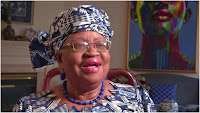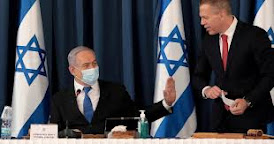As the United States doubles down on its diplomatic effort
to reach a common consensus with Europe on the 2015 Iran nuclear deal, pundits
raise speculation on how the European Union, particularly EU Foreign Policy Chief
Josep Borrell, can save the day by setting the stage for Iran and the US to
ultimately implement the nuclear deal in full.
These pundits rarely point to the fact that the European
signatories to the nuclear deal – Joint Comprehensive Plan of Action (JCPOA) –
have lost the neutrality needed to act as a go-between since Joe Biden won the
US presidential election in November. The Europeans are now harboring even more
hawkish views than Washington itself.
During the Trump administration, the European parties to the
JCPOA – France, Germany and the UK (E3) – had been calling on Iran to fully
implement the nuclear deal in the hope that Trump would lose the presidential
election and then they will revive the JCPOA in collaboration with a more
favorite Democratic administration.
Trump lost the election and was replaced by someone who had
played a direct role in negotiating the JCPOA in the first place. But the
Europeans were quick to renege on their promise to salvage the nuclear deal.
They called for a new negotiation with Iran after Biden assumed office, one
that would expand the JCPOA and add other thorny issues such as Iran’s
defensive missile program and its regional activities to it.
The top diplomats of the E3 and the US reiterated this
position during a recnt joint meeting.
“The E3 welcomed the prospect of a US and Iranian return to
compliance with the JCPOA. The E3 and the United States affirmed their
determination to then strengthen the JCPOA and, together with regional parties
and the wider international community, address broader security concerns
related to Iran’s missile programs and regional activities. We are committed to
working together toward these goals,” the chief diplomats said in a joint
statement after the meeting.
The Europeans are now planning an informal meeting of all
JCPOA participants and the US. Citing a European official, Reuters said that
the date of this meeting is yet to be set. The official also pointed to a
US willingness to accept an invitation from the EU to participate in a meeting
of the P5+1.
Earlier, US State Department spokesman Ned Price said
Washington was willing to attend a meeting of the P5+1, although the US is not
a member of this group of major world powers.
“The United States would accept an invitation from the
European Union High Representative to attend a meeting of the P5+1 and Iran to
discuss a diplomatic way forward on Iran's nuclear program,” Price noted,
referring to the UN Security Council's five permanent members and Germany.
Price’s remarks signified a U.S. desire to walk into the
P4+1 with the help of the E3 even before lifting its sanctions on Iran.
Iran’s Foreign Ministry spokesman Saeed Khatibzadeh reminded
the West that the US is still not a JCPOA member and the only way to get the
JCPOA membership is to lift sanctions.
Because of US withdrawal from JCPOA, there is NO P5+1. It is
now only Iran and P4+1. Remember, Trump left the room and tried to blow it up.
Gestures are fine. But to revive P5+1, US must act lift sanctions. We will
respond, Khatibzadeh said on Friday.
But while the E3 tries to sneak the US in the JCPOA without
lifting the sanctions, two JCPOA parties, namely China and Russia, can ensure
that the US would rejoin the nuclear deal after correcting the mistakes Trump
made against Iran.
China took a step in this regard by saying that US should
unconditionally return to the JCPOA and lift all sanctions.
Speaking at a news conference, China’s Foreign Ministry Hua
Chunying said, “Currently the Iranian nuclear issue is at a critical stage with
both opportunities and challenges. China holds that the return of the United
States to the JCPOA is the only correct approach to resolve the impasse on this
issue. All parties should act with greater urgency, work together to implement
consensus reached at the foreign ministers' meeting last December, and push for
the unconditional return of the United States to the JCPOA as soon as possible
and the lifting of all sanctions on Iran. On its part, Iran should resume full
compliance with the JCPOA. In the meantime, we call on all sides to remain calm
and exercise restraint, avoid taking actions that will escalate the situation
and reserve space for diplomatic efforts.”
Russia, for its part, reminded the West why the JCPOA ended
up a failed deal. Dmitry Peskov, spokesman for the Kremlin, has welcomed a US
decision to rescind the Trump administration’s restoration of all UN sanctions
on Iran in September.
Peskov also said that the main reason for the
non-implementation of the JCPOA is the sanctions pressure that the US put on
Iran.
Also, Russian Deputy Foreign Minister Sergey Ryabkov told
TASS that Iran cannot be suspected of carrying out a covert nuclear weapons
program as the E3 and the US ramped up pressure on Iran, accusing it of
pursuing nuclear activities that have no civil justifications.
“We have always said and are saying now that a state, which
has an agreement on comprehensive guarantees with the International Atomic
Energy Agency (IAEA) and which has been committed to this deal - and Iran has
such an agreement, and a state, which has been fully observing the JCPOA for a
long time, cannot be suspected of carrying out a covert program on
weaponization in the nuclear field,” Ryabkov noted.
With the E3 working to pave the way for a US return to the
JCPOA without lifting the sanctions, Russia and China have a unique opportunity
to ensure that the dispute around the JCPOA is resolved reasonably. They need
to make it clear to the West that a dispute settled unfairly is bound to break
out in the not-so-distant future.












